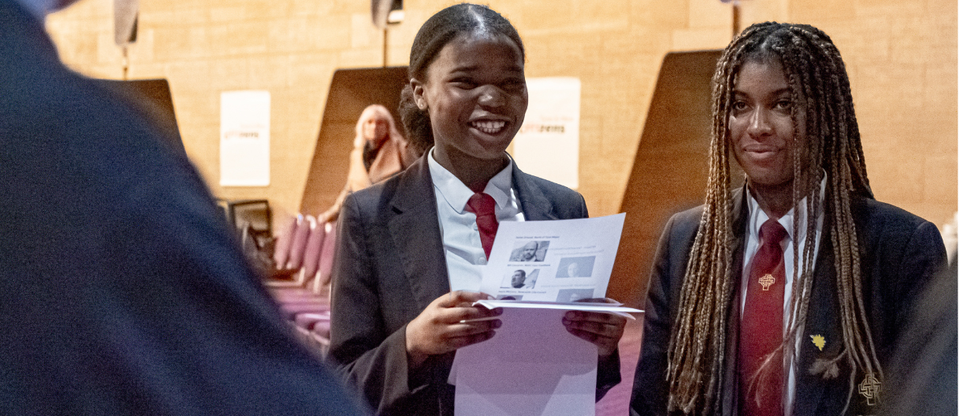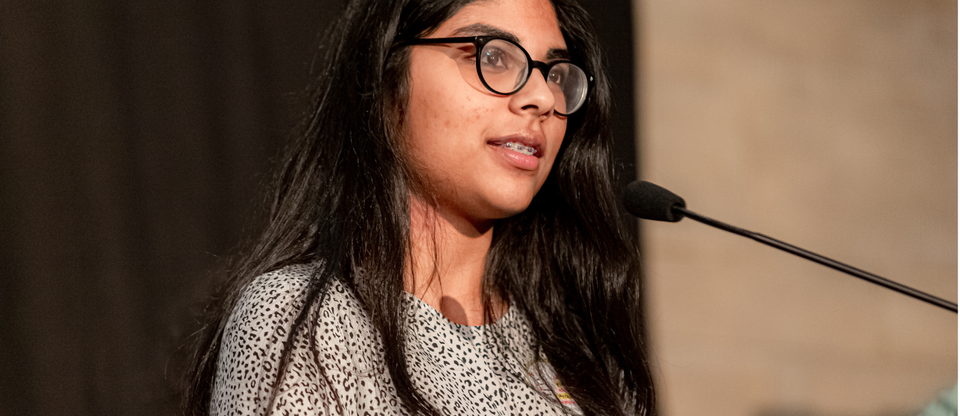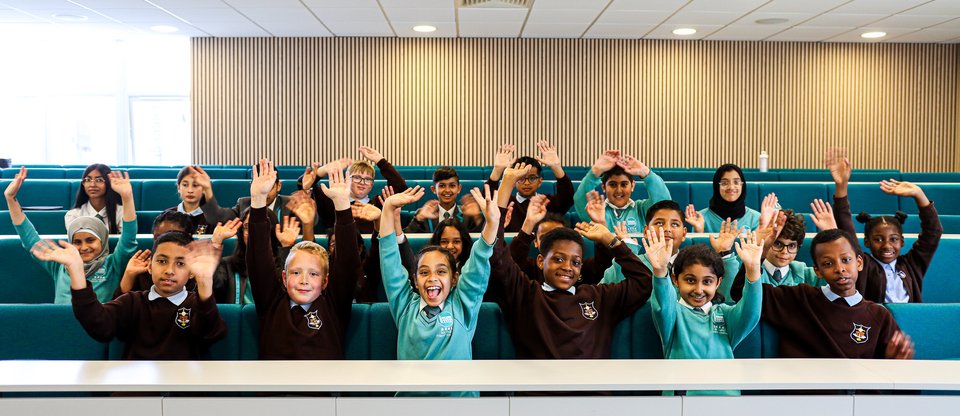Joint call for statutory School-Based Counselling launches during Children's Mental Health Week
Joint call for statutory School-Based Counselling launches during Children's Mental Health Week
Children's Mental Health Week - February 2024
In response to the worsening mental health situation for children and young people in England, Citizens UK has allied with the NASUWT, BACP, NAHT, NCPS and Parentkind to campaign for a fair, workable and long-term solution.
Together, we ask the next government to legislate for the statutory provision of counselling by specialist children and young people counsellors or psychotherapists to address the mental health needs of pupils in primary and secondary schools and Further Education Colleges in England or wherever a child is educated within the state system.

Even before COVID, children and young people were suffering from diagnosable mental health conditions - anxiety, depression and suicidal thoughts. Their mental health conditions worsen through extended wait times for treatment in overstretched NHS services across England.
The mental health of children and young people has deteriorated further over the last few years. Now, one in five children and young people have a diagnosable mental health condition. Their mental health is made worse by the social determinants that condition their lives.
In 2023, Parentkind published The National Parent Survey of more than 5000 parents, which revealed:
- 4 in 10 parents report their primary school-age child has experienced anxiety, rising to almost half for parents of secondary school-age children.
- 1 in 7 parents say their primary school-age child has experienced depression, rising to 1 in 6 for parents of secondary school-age children.
The many children and young people who need more than pastoral care and mental health awareness support but do not satisfy a referral to specialist services are caught in the middle with little or no therapeutic provision available to them. We call this group of children and young people the “missing middle”.

In the UK, England is the only country where counselling is not government-funded. Here, schools and colleges struggle to pay for in-house, sessional or commissioned service provision from their overstretched budgets or grants from local charities.
We know anxiety and depression are amongst the most common mental health issues for children and young people. Early intervention by trained counsellors embedded in schools and colleges would have clear benefits. Children and young people would be more able to manage their mental health issues and challenges, and savings on CAMHS would be substantial.
This is why a crucial aspect of the campaign is the call for government-funded counselling in all schools and Further Education colleges in England.

Dr Patrick Roach, General Secretary of NASUWT, said, “We believe there are huge benefits for young people, school staff and the wider health service in having access to school-based counsellors. It is clear that the need for trained support is there and is growing. Investment in school-based counsellors and early intervention could help to prevent many young people reaching crisis point, remove barriers to learning, and contribute to tackling the problem of long-term absenteeism.”
BACP’s partnership with Citizens UK, alongside key teaching unions and charities, has strengthened our ongoing call to secure funding for all children and young people to have access to a paid and appropriately trained school-based counsellor in every school and college in England. This would remove the current postcode lottery with some schools able to pay for additional counselling provision, others relying on third-sector providers and some having no access to counselling at all.
Within our membership alone there is an underutilised workforce who have capacity to take on more work paid work, offering specialist early help counselling interventions within school and college settings which would significantly improve the mental health and wellbeing of our children and young people, their attendance and attainment and reduce pressure on CAMHS and other related services.
Dr Phil James, CEO of BACP
There is a real urgency for additional resources to support the mental health and wellbeing of pupils. In this election year, we want to see all political parties commit to going further and faster, not only in extending access to school mental health support teams much more quickly, but also by funding counselling or creative therapies in all schools and easy-access support hubs in every community which offer early help to children who are struggling.
Paul Whiteman, General Secretary of NAHT
The NCPS are delighted to support this call. We know that mental health support in education is inconsistent, and is largely dependent on the area in which the establishments are situated. Those who attend schools in more affluent areas are more likely to be able to see a counsellor through their school than those schools in disadvantaged areas, and while there is guidance available around counselling in schools nothing is mandated. We would like to see the best practice that is happening in well-funded areas be replicated throughout England, so that all of our young people have access to the kind of support that will work best for them.
Jyles Robillard-Day, CEO of NCPS
The National Parent Survey, one of the largest parent surveys in the UK, reveals that parents are worried about their children's mental health with almost half of parents of teenagers telling us their children have suffered from anxiety. Our national survey of parents tells us about one in six teenage children have suffered from depression, that’s about five in every classroom. Parents also tell us they are not happy with the support on offer to deal with these issues. We need to recognise the scale of this issue and take urgent action to address the mental health crisis sweeping through our schools. When it comes to the General Election parties need to put forward ambitious plans to help young people suffering from anxiety and depression. Parents are raising alarm bells with us and politicians need to listen.
Jason Elsom, CEO of Parentkind
As a Headteacher, I see how significant mental health is a barrier to many young people on a daily basis. The extent to which teachers and pastoral support staff are having to fill the many gaps of trained mental health support has grown exponentially. This approach is not beneficial to anyone. When mental health support is delivered by trained counsellors, young people can readily access their learning; using strategies they've learned and can be taught by teachers who can then use their training to teach.
Shelley Baker, Headteacher of Varndean School, Brighton
In year 10 I was really struggling with my mental health. I was in a really negative mindset to the point it was beginning to affect me in school. I began seeing the school counsellor mid-way through Year 10. Being able to speak to somebody about how I was feeling was really beneficial, she helped me navigate and understand what I was feeling and helped me develop skills to change my mindset. Without seeing a school counsellor, and getting the help I needed, my mental health would have gotten much worse. Seeing the school counsellor helped make me feel me again and allowed me to enjoy life again.
Rachel Bennett, Year 12, St Thomas More Catholic High School, North Shields
Children and young people deserve the best education we can provide. Anything that gets in the way is a problem that we need to find a solution for. That is why the worsening mental health of children and young people needs tackling proactively, even as early as primary school with qualified counsellors trained to work with children and young people.
Revd Dr Simon Mason, Citizens UK

We know everyday people have the ability to shape the world around them.
That's why pupils, teachers, unions and health organisations from chapters across Citizens UK are coming together to drive nationwide change on mental health services in schools and colleges - an issue that communities care about. Read more about the school-based counselling campaign.




